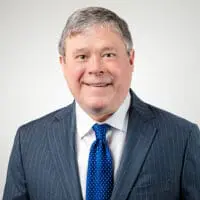Environmental & Natural Resources Law
Ninth Circuit Wetlands Ruling Muddies the Waters for Development Nationwide
On Thursday, May 28, 2020, the U.S. Court of Appeals for the Ninth Circuit declined to stay on appeal a lower court ruling which has already had a nationwide impact on permitting of oil and gas pipelines that cross streams and wetlands. The underlying dispute arose from the long-standing controversy over the Keystone XL pipeline, but the decision extends nationally to permitting of other oil and gas pipelines, and may well spill over to other activities that affect jurisdictional wetlands. On April 15, 2020, in Northern Plains Resource Council v. Army Corps of Engineers, Judge Brian Morris of the U.S. District Court for the District of Montana vacated on a national basis the U.S. Army Corps of Engineers’ Nationwide Permit 12, which creates a streamlined process for permitting of utility stream and wetlands crossings, even though the environmental plaintiffs in the case had not asked for such a sweeping ruling. In declining to stay Judge Morris’ ruling pending appeal, the Ninth Circuit’s order means that any oil and gas pipeline project in the United States must now utilize the far more rigorous and time-consuming Army Corps of Engineers (ACOE) individual permitting process for any stream and wetlands crossings until a decision is reached on the merits in the litigation.
ACOE regulates the discharge of dredged or fill material into waters of the United States (WOTUS) under Section 404 of the Clean Water Act (CWA). WOTUS, as defined in CWA regulations, include navigable waters, tributaries to navigable waters, and certain adjacent wetlands. (The scope of WOTUS is a topic of significant dispute in itself).
Under CWA Section 404(e), ACOE can issue general permits to authorize activities that have only minimal individual and cumulative adverse environmental effects. A nationwide permit (NWP) is a type of general permit that authorizes specified types of minimally intrusive activities as a matter of course, so long as the applicant complies with specified environmental protection conditions. NWPs exist for a diverse set of potential activities, including utility line crossings (NWP 12), hydropower development (NWP 17), residential development (NWP 29), commercial and industrial development (NWP 39), mining (NWP 44) and renewable energy development (NWP 51). NWPs are required by law to be-reauthorized every five years, which was last accomplished by ACOE in 2017.
NWP 12 allows utility crossings that will disturb less than ½ acre of regulated wetlands per individual crossing to proceed under certain conditions. For more extensive disturbance of WOTUS, ACOE requires “standard” permits that are issued on a case-by-case basis through a much more rigorous permitting process that can take upward of 18 months. For a large pipeline or transmission line project that may cross many individual watercourses along a lengthy route, but have a minimal effect at each, the availability of NWP 12 to supplant the ACOE standard process can represent a substantial cost and time savings for the project proponent.
The environmental plaintiffs in the Northern Plains case argued that ACOE’s authorization for the Keystone XL pipeline to use NWP 12 for stream and wetland crossings violated the federal Endangered Species Act (ESA), which requires consultation by the permitting agency with the U.S. Fish and Wildlife Service (USFWS) for any regulatory action that may impact listed threatened or endangered (T&E) species or critical habitat. The pipeline opponents focused on ACOE’s alleged failure to conduct ESA consultation with USWFS when it renewed NWP 12 in 2017. ACOE and the pipeline proponent argued that there could be no impact on T&E species in any event because one regulatory condition (designated General Condition 18) for use of a NWP in the first case is that there be no negative impact on T&E species, and that consultation for renewal of NWP 12 in 2017 was not required for various reasons.
Judge Morris’ April 15 order sided with the environmental plaintiffs, with a significant twist. Although the plaintiffs had asked only that the Keystone XL pipeline’s use of NWP 12 be blocked, and although Judge Morris had previously stated that the case would only impact the Keystone XL project, the April 15 order vacated NWP nationally, on the basis that ACOE had not undertaken consultation with USFWS when renewing NWP 12 in 2017.
The result of Judge Morris ruling was that every utility project of any type in the United States – whether pipeline, electric transmission, or other utility – that was relying on NWP 12 to provide regulatory certainty for stream and wetlands crossings could no longer do so. Through an amended order dated May 11, Judge Morris walked back his original ruling, limiting its applicability to oil and gas pipelines, although still with nationwide effect.
The Ninth Circuit’s May 28 Order summarily denied expedited motions to stay the district court ruling on appeal. In seeking a stay, the U.S. Department of Justice had strongly decried the procedural irregularity of Judge Morris issuing a ruling with nationwide effect where he had not been asked to do so by the plaintiffs, and where the court had previously stated that the case was local in nature. Various industry and business groups also weighed in, noting the devastating impact of the nationwide ruling on ongoing pipeline projects employing thousands during the national economic downturn caused by the COVID-19 pandemic.
Denial of the stay means that NWP 12 is unavailable for permitting of oil and gas pipelines pending a decision on the merits, unless USDOJ or the industry parties seek and are able to obtain a stay from the U.S. Supreme Court. As importantly, if the District Court’s ruling that ACOE should have undertaken formal ESA consultations with USFWS when renewing NWP 12 in 2017 is upheld on the merits by the 9th Circuit, the decision could create a basis for project opponents to challenge use of NWPs by other industries. Businesses with current and future activities that may affect streams and wetlands, and that utilize other NWPs, should follow the case closely.
























